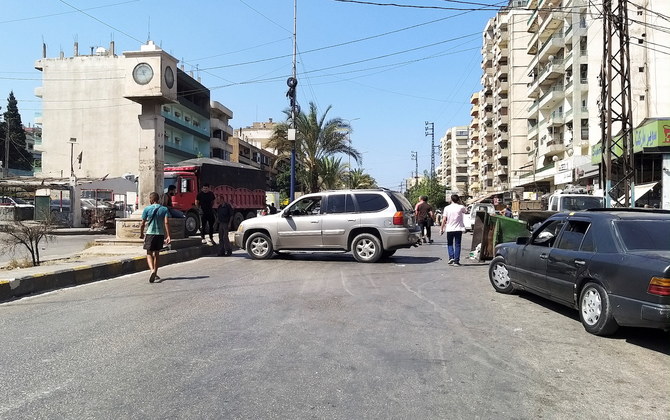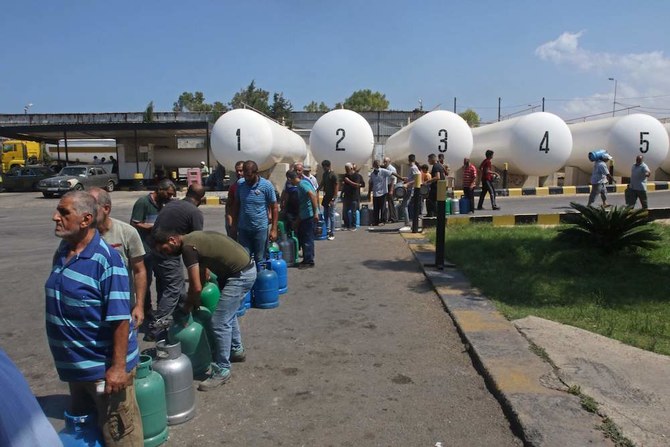:quality(70)/cloudfront-eu-central-1.images.arcpublishing.com/thenational/EUABODUY4ABNZ7OBOSEMAK4FOA.jpg)
By Sunniva Rose -- thenationalnews.com -- The outcome of the parliamentary session could have potentially replaced the judicial inquiry with a parliamentary one, much to the dismay of families of victims who believe that members of Parliament want to protect politicians under investigation. Parliament speaker Nabih Berri scheduled the session following a petition signed in late July by MPs requesting a vote that would be the first step towards establishing a special court for trying ministers and presidents. The MPs who signed the petition were members of Mr Berri's political party, the Amal movement, as well as its close ally, Iran-backed Hezbollah, in addition to former prime minister-designate Saad Hariri's Future Movement. The postponement of Thursday's session “is a victory because their main objective was to set up a special tribunal for presidents and ministers which is just a way to bury decisions,” said Ibrahim Hoteit, who lost his brother, Tharwat, in the explosion on August 4, 2020. At least 214 people died.
“Parliament realised the judge is working seriously and is now trying to remove him,” said Wissam Lahham, a university professor and an expert in Lebanese constitutional law. “We don’t have a state, we have gangs who are fighting us to avoid justice,” said Mr Hoteit, a representative for a group of victims' families. He said he suffered head, shoulder, legs and back injuries after an attack on peaceful protesters on Wednesday night. The group wanted to camp outside the Unesco palace, where Parliament meets, to pressure Mr Berri into cancelling Thursday’s session. Mr Hoteit said the attackers, who wore both civilian and military clothing, wounded at least nine people and chanted slogans in support of Mr Berri. The attack took place one kilometre away from the neighbourhood of Ain El Tineh, where Mr Berri lives. A representative of the Amal Movement did not respond to a request for comment.

By NAJIA HOUSSARI - arabnews.com -- BEIRUT: Angry Lebanese blocked roads across the country on Thursday, a day after the central bank said it could no longer afford to subsidise fuel imports below the black market rate. As the economy crumbles and Lebanon’s foreign reserves dwindle, the decision has been considered a de facto lifting of fuel subsidies. Confrontations with soldiers erupted in Tripoli amid a shortage of diesel to run private generators, which are only available on the black market at double the subsidized price. Protests also erupted around the house of Prime Minister-designate Najib Mikati in Tripoli. Protesters from the southern town of Sarafand stormed the Al-Zahrani power plant demanding electricity as the diesel shortage is preventing the operation of private generators. They stressed “nepotism in distributing diesel to the powerful and barely giving any to ordinary people.”
People blocked roads in the north, south and east of the country in protest against the deteriorating living conditions. Motorists were trapped in long queues outside the remaining active petrol stations, rushing to fill up before the Ministry of Energy announced new prices. The cost of petrol is expected to at least triple, according to projections by the Information International think tank. The Lebanese pound has lost more than 90 percent of its value against the dollar on the black market in less than two years. Riad Salameh, governor of Lebanon’s central bank, informed President Michel Aoun that he “is unable to continue subsidizing fuel except under a law issued by parliament allowing the use of mandatory foreign exchange investments.”

by arabnews.com -- BEIRUT: The Lebanese central bank (Banque du Liban) said it would offer a line of credit for fuel importers based on the market price for the Lebanese pound from Thursday, effectively ending a fuel subsidy that has drained its reserves since the country descended into financial crisis. The move, announced late on Wednesday, means fuel prices will rise steeply: One Lebanese broadcaster cited figures showing the price of unsubsidized 95 octane gasoline at more than four times the subsidized price. In a statement, the central bank said the decision will be effective Thursday and new prices will be determined by the Ministry of Energy. The decision comes amid an unfolding energy crisis that has plunged the country into hours of darkness, threatened hospitals and businesses with shutdown and sparked deadly violence among consumers and motorists looking for fuel.
It will spell more hardship for the growing number of people in poverty in a country whose currency has lost more than 90 percent of its value in less than two years, in what the World Bank has described as one of the sharpest depressions in modern history. But it should also alleviate crippling fuel supply shortages as incentives to smuggle and hoard heavily subsidized fuel disappear, said Nassib Ghobril, chief economist at Byblos Bank. Bank Governor Riad Salameh had said earlier in the day at a meeting of the Supreme Defense Council that the bank could no longer continue to offer lines of credit and subsidize fuel imports, a ministerial source and Al-Jadeed TV said. Since the onset of the crisis, the central bank had been effectively subsidizing fuel by using its dollar reserves to finance fuel imports at official exchange rates well below the rates on the parallel market.
توضيح من مكتب الرئيس سليمان بشأن وصول النيرات وتفريغها في العنبر ١٢ أوضح المكتب الاعلامي للرئيس العماد ميشال سليمان ان ما تداولته …
Khazen History


Historical Feature:
Churches and Monasteries of the Khazen family

St. Anthony of Padua Church in Ballouneh
Mar Abda Church in Bakaatit Kanaan
Saint Michael Church in Bkaatouta
Saint Therese Church in Qolayaat
Saint Simeon Stylites (مار سمعان العامودي) Church In Ajaltoun
Virgin Mary Church (سيدة المعونات) in Sheilé
Assumption of Mary Church in Ballouneh
1 - The sword of the Maronite Prince
2 - LES KHAZEN CONSULS DE FRANCE
3 - LES MARONITES & LES KHAZEN
4 - LES MAAN & LES KHAZEN
5 - ORIGINE DE LA FAMILLE
Population Movements to Keserwan - The Khazens and The Maans
ما جاء عن الثورة في المقاطعة الكسروانية
ثورة أهالي كسروان على المشايخ الخوازنة وأسبابها
Origins of the "Prince of Maronite" Title
Growing diversity: the Khazin sheiks and the clergy in the first decades of the 18th century
Historical Members:
Barbar Beik El Khazen [English]
Patriach Toubia Kaiss El Khazen(Biography & Life Part1 Part2) (Arabic)
Patriach Youssef Dargham El Khazen (Cont'd)
Cheikh Bishara Jafal El Khazen
Patriarch Youssef Raji El Khazen
The Martyrs Cheikh Philippe & Cheikh Farid El Khazen
Cheikh Nawfal El Khazen (Consul De France)
Cheikh Hossun El Khazen (Consul De France)
Cheikh Abou-Nawfal El Khazen (Consul De France)
Cheikh Francis Abee Nader & his son Yousef
Cheikh Abou-Kanso El Khazen (Consul De France)
Cheikh Abou Nader El Khazen
Cheikh Chafic El Khazen
Cheikh Keserwan El Khazen
Cheikh Serhal El Khazen [English]
Cheikh Rafiq El Khazen [English]
Cheikh Hanna El Khazen
Cheikha Arzi El Khazen
Marie El Khazen